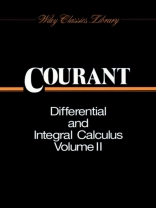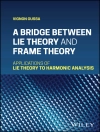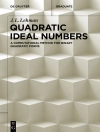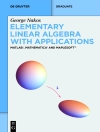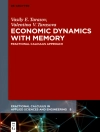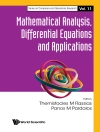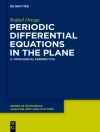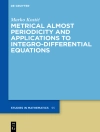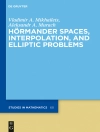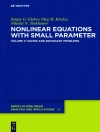Volume 2 of the classic advanced calculus text
Richard Courant’s Differential and Integral Calculus is considered an essential text for those working toward a career in physics or other applied math. Volume 2 covers the more advanced concepts of analytical geometry and vector analysis, including multivariable functions, multiple integrals, integration over regions, and much more, with extensive appendices featuring additional instruction and author annotations. The included supplement contains formula and theorem lists, examples, and answers to in-text problems for quick reference.
Зміст
Partial table of contents:
Preliminary Remarks on Analytical Geometry and Vector Analysis:Rectangular Coordinates and Vectors, Affine Transformations and the Multiplication of Determinants.
Functions of Several Variables and Their Derivatives: Continuity, The Total Differential of a Function and Its Geometrical Meaning.
Developments and Applications of the Differential Calculus:Implicit Functions, Maxima and Minima.
Multiple Integrals: Transformation of Multiple Integrals, Improper Integrals.
Integration over Regions in Several Dimensions: Surface Integrals, Stokes’s Theorem in Space.
Differential Equations: Examples on the Mechanics of a Particle, Linear Differential Equations.
Calculus of Variations: Euler’s Differential Equation in the Simplest Case, Generalizations.
Functions of a Complex Variable: The Integration of Analytic Functions, Cauchy’s Formula and Its Applications.
Appendixes.
Index.
Про автора
Richard Courant (1888 – 1972) obtained his doctorate at the University of Göttingen in 1910. Here, he became Hilbert’s assistant. He returned to Göttingen to continue his research after World War I, and founded and headed the university’s Mathematical Institute. In 1933, Courant left Germany for England, from whence he went on to the United States after a year. In 1936, he became a professor at the New York University. Here, he headed the Department of Mathematics and was Director of the Institute of Mathematical Sciences – which was subsequently renamed the Courant Institute of Mathematical Sciences. Among other things, Courant is well remembered for his achievement regarding the finite element method, which he set on a solid mathematical basis and which is nowadays the most important way to solve partial differential equations numerically.
